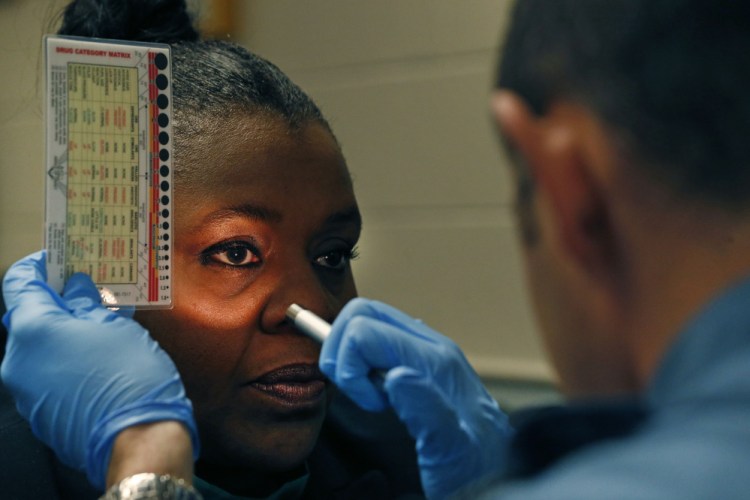Experts and law enforcement officers will gather Monday in Portland to discuss how to improve highway safety as more drivers get behind the wheel after using marijuana and other drugs.
The impaired-driving summit, sponsored by AAA Northern New England and the Maine Bureau of Highway Safety, will focus on new research and approaches to deal with drivers who are under the influence. With the prospect of marijuana legalization in the state, the summit will focus largely on cannabis-impaired driving, according to organizers.
The summit comes less than a week after AAA released a new study that finds blood tests are useless for detecting pot-based operating under the influence and as Maine voters consider whether to legalize recreational marijuana.
“We are dialing in on marijuana as the state prepares for the potential passage of the (legalization) ballot initiative this November,” said Pat Moody, director of public affairs for AAA Northern New England. “There is a need to make sure we are prepared to deal with the challenges that will come if Maine legalizes the recreational use of marijuana.”
In November, voters will decide if Maine should join Colorado, Washington, Oregon, Alaska and the District of Columbia in allowing adult use of marijuana. Maine has allowed medical marijuana since 1999.
Even before the legalization referendum qualified for the ballot, legislators were looking at how to deal with the issue of people driving while impaired by marijuana. Unlike with alcohol, there is not a breath test to determine impairment. Experts say it is difficult to set legal limits for the concentration of tetrahydrocannabinol – or THC, the psychoactive ingredient in marijuana – in the blood because THC affects everyone differently and is detectable in tests long after a person stops being impaired.
The Legislature considered a bill to set a 5-nanogram limit in drivers’ blood, but it was rejected by the House last month. Currently, six states – Colorado, Montana, Nevada, Ohio, Pennsylvania and Washington – have set specific limits for THC, the Associated Press reported.
The study by the AAA Foundation for Traffic Safety says the limits have no scientific basis and can result in innocent drivers being convicted, and in guilty drivers being released.
Police currently use a drug recognition exam on the roadside to detect impairment from drugs. But some say officers need better tools to stop drugged driving as the culture becomes more accepting of marijuana use.
The summit will bring together more than 200 people – including experts, law enforcement officers, prosecutors and defense attorneys – to discuss new research and approaches to combating impaired driving. There will be discussions about prescription medication and heroin.
“We wanted a strong focus on drug-impaired driving because of the national and local push to legalize recreational marijuana. We expect we’ll see an increase in the incidents involving law enforcement arresting impaired drivers,” said Scot Mattox, a traffic safety resource prosecutor with the Maine Bureau of Highway Safety. “The main message is that, regardless of viewpoints on which drugs are legal or not, this is something law enforcement and prosecutors are tasked with. We want to be prepared.”
Recent research into the effect of marijuana use on drivers is mixed, although many studies indicate drivers are less impaired by marijuana than by alcohol and tend to make fewer risky choices than drunken drivers. The National Institute on Drug Abuse maintains that marijuana significantly impairs judgment, motor coordination and reaction time, but other research shows drivers impaired by marijuana overcompensate by driving more slowly and avoiding passing other cars.
The summit will be held from 8:30 a.m. to 3:30 p.m. at the Abromson Center at the University of Southern Maine in Portland.
Send questions/comments to the editors.



